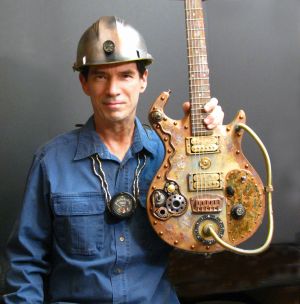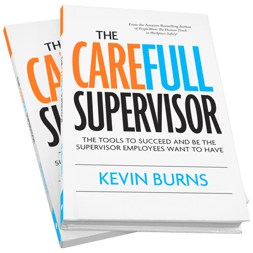To attract the people who already buy-in to safety as a personal value, you need to study the example of how guitar-stores hire employees.

You don't find personal values on a résumé. The résumé is a lousy tool for finding engaged workers with a set of personal values that buy-in to safety. A résumé doesn't give you that information. It only tells others what a worker was allowed to do in their last job - not what they were good at, not what they stand for and certainly not what makes their bum hum (excites them and drives high motivation).
Guitar Stores Hire Excellent Performers
Perhaps, to attract the people who already buy-in to safety as a personal value, you need to study the example of how guitar-stores hire employees.
Guitar stores don't hire disengaged employees. That's because the decision to interview, and subsequently hire, is not done by a résumé. Although the candidate may be able to play an instrument, they are not hired for their mastery of the instrument, for the number of years they've been playing or for their formal music schooling. They are not hired for what is on their résumé, and they don't take the job because it's a high-paying position. It is not. They take the job because they are enthusiastic at the thought of being around music. They are hired for their enthusiasm for music and their willingness to learn and to teach others. Music, for successful job candidates, is a deeply-ingrained personal value - one that they don't turn off at the end of their shift either.
And that's how attracting, recruiting and hiring top-notch safety performers should work too: look for enthusiasm in safety over experience in a trade.
Money Is Not The #1 Driver - It's #7
You still think that all people want is money. You must think that. You're still advertising your job openings as a shopping list of required skills and remunerating based on experience. You probably think that if you pay more, you get better people. Whoops. Big mistake. Money isn't the number one driver anymore. Money comes in at number seven. What motivates employees? It's not just the money.
In the job search, experience has become more important than values. Education seems to trump character. Meantime, Gallup says that the workplace is rife with unengaged workers - over 70% in fact, are not fully engaged. Meanwhile, overall workplace incidents are rising. You can bet there's a direct relationship between high numbers of disengaged workers and the numbers of workplace accidents.
When Qualified Candidates Are Scarce
A few weeks ago, in Northern Alberta, where the economy is on fire, HR personnel gathered together for several meetings. The major complaint through all of the meetings was their inability to find enough qualified workers for all of the work they have. They complained that they would only get a handful of résumés for each job posting they advertised and that when the résumés came in, they were sadly deficient in required skills. I asked why they even bothered with résumés at all and, if there are only a handful applying, why isn't everyone getting an interview?
You are more likely to relax your own stringent requirements if a person with the right character and work ethic is standing in front of you - especially if that person has demonstrated their enthusiasm to attend to their deficient areas. And on the flip-side, people are less inclined to apply for jobs if they are missing one or two requirements. Therefore, good people don't respond, and HR personnel never get to meet good people who are willing to do the work to upgrade themselves to fit the jobs.
Safety Is An Add-on
Safety operates in a world dominated by hierarchies, certifications and experience. Safety managers get to be safety managers purely by their certification - where the focus is primarily on education of safety and OH&S requirements, and little attention is paid to management - the dissemination of that learning. Rarely do you see a safety manager without safety certification but it is commonplace to see a safety manager without management skills training. It seems a waste of time and energy to have all of that learning and be deficient in the skills to impart the information to others - except through compliance, enforcement and policing.
Unfortunately, safety is an add-on: an after-thought after the candidate has already been hired. Meanwhile, the hiring of quality safety performers is left to the devices of someone not under direct control of safety. Picture the HR person who, while carrying a coffee in one hand and laptop in the other, races down the stairs without grabbing the handrail to greet a job candidate arriving for an interview - a job that will require a buy-in to safety.
Takes One To Know One
Can a person, who doesn't themself embrace safety as a personal value, be capable of spotting that safety gene in others? Is the safety gene evident on a résumé or are you simply expecting that your safety trainers and safety managers will make your new hire compliant with safety - even if they have no personal safety values?
By all means, keep advertising your jobs as a shopping list of required skills. And keep accepting résumés expecting to find people who are engaged, focused and who embrace safety as a personal value. Meanwhile, keep on ignoring the enthusiastic job candidate whose values for safety could be just what your workplace needed to actively contribute to a culture of safety. Ignore them because their résumé doesn't have all the right check marks.
But, if you want to explore how your company might embrace the wholistic view of safety to build a strong safety culture, call me now. I'd be pleased to have an initial conversation with you about it.



